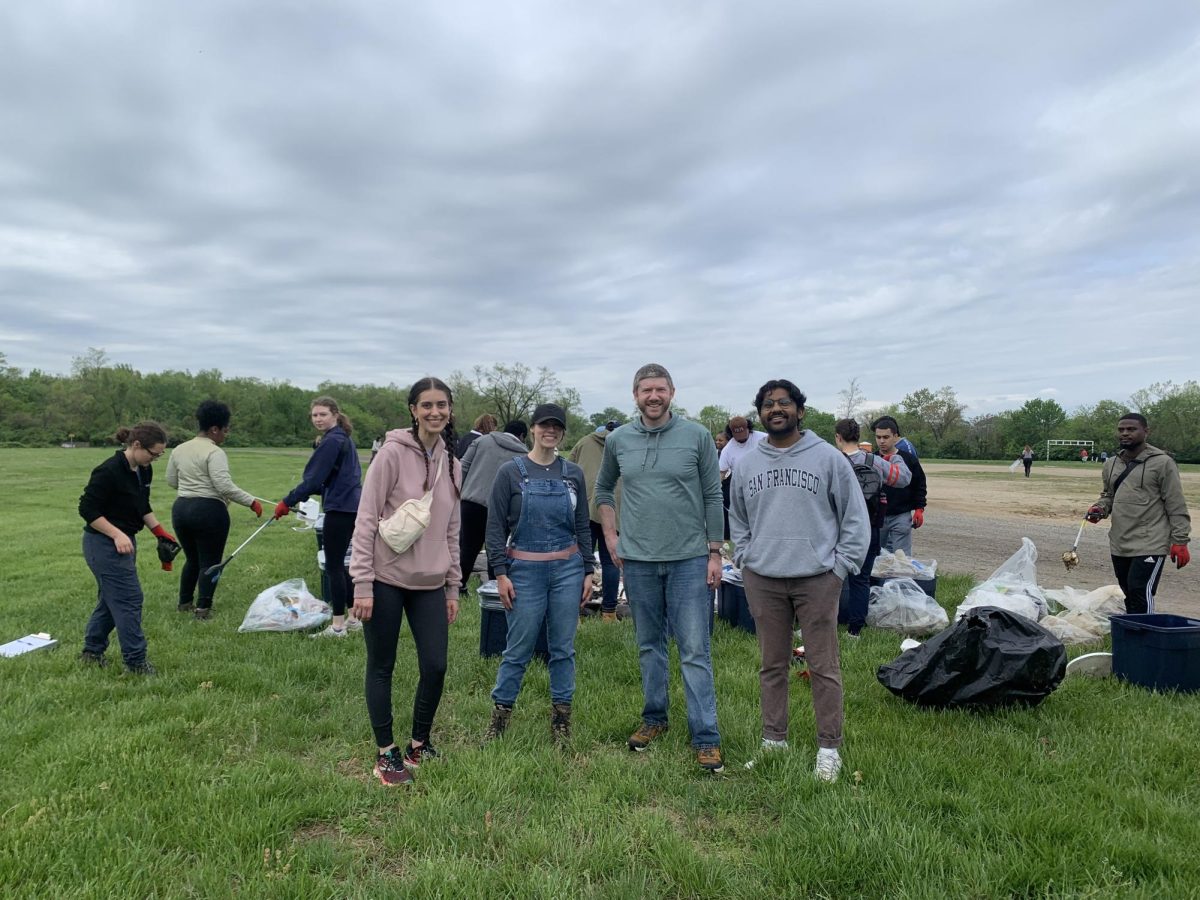Georgetown University professors collaborated with a committee of the United Nations to produce the first-ever long-term study on internally displaced persons in Iraq.
The study analyzed 3,500 households of internally displaced persons (IDPs) in Iraq, individuals forced to leave their homes but who still remain within the borders of their country, over the last six years. Analysts from the International Organization for Migration (IOM), an intergovernmental group of the United Nations specializing in the field of migration studies, collaborated with the Georgetown University Law Center Institute for the Study of International Migration (ISIM) and the Georgetown University Center for Contemporary Arab Studies (CCAS) to conduct the study. The report is the first of its kind to study IDPs over a multi-year period, according to Rochelle Davis, director of CCAS.
Davis said the consistency that came with studying the same families over a six-year period was key to allowing the team to understand the long term effects of displacement on families.
“The idea of ‘durable solutions’ for IDPs is something developed at the international level to think about when displacement ends,” Davis wrote in an email to The Hoya. “This study is the first ever to follow IDPs over time as they return to their destroyed homes, move elsewhere, or settle in the places they took refuge in and rebuild their lives there.”

While the full results of the study will be presented in a report set to be published in late 2021, a September fact sheet that showed some initial data from the study focused on the effects of COVID-19 on IDPs.
A member of one in five households studied either got sick or died from the virus, and the majority of families studied had difficulties managing the pandemic, according to the fact sheet.
“While the vast majority (72%) of these households report that getting tested for COVID-19 was somewhat or very easy, equally large shares (74%) report it was somewhat or very difficult to afford medications to alleviate symptoms,” the fact sheet reads.
As of 2019, there were 45.7 million people experiencing internal displacement across the world, whether because of violence, conflict or natural disasters. Meanwhile, during the same year, there were 26 million individuals identified as refugees, or those who flee their homes and exit the country.
Despite this disparity, most studies of migration focus on refugees and neglect IDPs, according to Elizabeth Ferris, an ISIM research professor at Georgetown University.
“Although IDPs are twice as numerous and often more at risk — because they’re closer to the violence that displaced them — they get much less attention than refugees,” Ferris wrote in an email to The Hoya. “Both IDPs and refugees are staying displaced for longer periods of time particularly because conflicts are dragging on, making it difficult or impossible for them to return home.”
ISIM was eager to participate in a study that elevated the stories of IDPs, according to Ferris.
“Georgetown worked with IOM to develop the survey instrument and trained the Iraqi staff to carry out the interviews,” Ferris wrote. “IOM field staff carried out the surveys — repeatedly — and then we at Georgetown took the lead in analyzing the results and writing them up. It was a wonderful collaborative effort, using our respective strengths.”
Ferris said working on this study was important because it presents tangible solutions for policy work on IDPs.
“We also found that for Iraqi IDPs, destruction of housing was a key impediment to return, so we were able to emphasize reconstruction of housing as a key factor in supporting solutions,” Ferris wrote.
According to Davis, the next step for policy makers is to advocate for funding from the Iraqi government to support the displaced families in the study. “The Iraqi government has offered compensation to those who lost homes, businesses, and farms,” Davis wrote. “And yet, as of May 2021, almost no one in our study had received compensation yet, despite many of them submitting the applications. The Iraqi government needs to make this happen as quickly as possible because people don’t have the money to rebuild without it.”





















